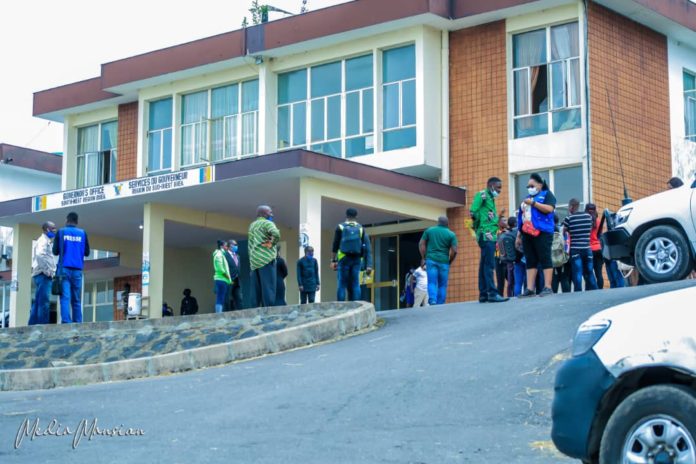Three United Nations special rapporteurs on extrajudicial executions, freedom of opinion, and torture have been called upon to investigate and expose the true circumstances leading to the death of Cameroonian journalist Samuel Wazizi, whose legal name was Samuel Ajiekah Abwue. Paris-based press freedom advocacy group, Reporters Without Borders (RSF), made the request on August 11, 2020, the organization said in a statement.
Many rights groups, including Reporters Without Borders, have doubted government’s official account of Wazizi’s death. “The government’s version is riddled with inconsistencies and we doubt that we will learn the truth from the promised investigation. We, therefore, urge the United Nations to do everything in their power to ensure that the circumstances resulting in Samuel Wazizi’s death are established,” Paul Coppin, Head of RSF’s Legal Unit, said. After Wazizi’s death was officially made public on June 5, 2020, President Biya promised to carry out an independent and transparent inquiry into the matter, but till now there has been no outcome.
Wazizi’s family, colleagues, and rights groups suspect the journalist was either severely tortured or mistreated. Back then in June, the Committee to Protect Journalists’ Africa Programme Coordinator, Angela Quintal said the Cameroonian government’s treatment of journalist Samuel Wazizi was cruel and shocking. “It is unbelievable that authorities covered up his death in custody for 10 months despite repeated inquiries from press freedom advocates and his family, colleagues, friends, and lawyers,” Quintal said.
RSF wants the UN to put pressure on the government of President Paul Biya to disclose those who perpetrated the death of the journalist and prosecute them accordingly.
Wazizi, a Pidgin newscaster and cameraman working for Chillen Muzik Television (CMTV) in Buea was arrested on August 2, 2019, in connection to the ongoing, drawn-out Anglophone crisis. Five days following his arrest, he was transferred by soldiers from the Muea police station, where he had been temporarily detained, to the 21st Motorized Infantry Brigade in Buea. Wazizi was subsequently transferred to an undisclosed facility and held incommunicado until his death. The journalist was suspected of having links with separatists but was never given the opportunity to appear in court for an impartial, free and fair trial. It is very likely the crackdown on Wazizi must have been related to the journalist’s critical reporting of the ongoing separatist conflict between resolute armed separatists seeking to create a state they would call ‘Ambazonia’ and government troops.
Under President Paul Biya, 87, who has been in power for close to four decades, Cameroon has in recent times seen a sharp decline in press freedom, making it difficult for journalists to hold authorities to account. The media landscape has been increasingly hostile that it is common for journalists critical of the regime to suffer intimidation, arbitrary arrest, and detention, as well as torture. Some, like Mbom Sixtus, have been forced to go on exile. Others have been gagged from speaking truth to power.
Cameroon is rated “Not Free” by Freedom House and the central African nation dropped five places in two years to emerged the 134th country in the world on RSF’s 2020 World Press Freedom Index.

